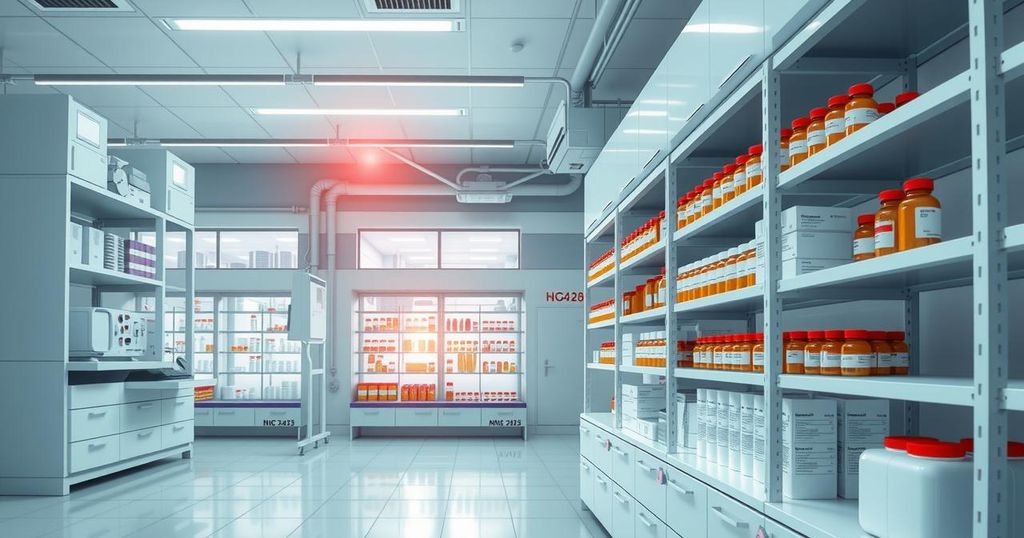Nigerian pharmacists reveal that low investment in local drug manufacturing persists due to high costs and inadequate infrastructure. Local manufacturers are unable to compete with imported drugs, leading to calls for government intervention to create a conducive environment for production. The urgency for local vaccine production to combat malaria was emphasized by health officials and legislators alike.
Pharmacists in Nigeria have expressed concerns regarding the country’s struggle to become a manufacturing hub for medications and vaccines. Ayuba Ibrahim, President of the Pharmaceutical Society of Nigeria, emphasized that the preference for importing pharmaceuticals stems from low investments and commercial viability for local production due to existing infrastructure inadequacies. The high capital required to establish drug manufacturing facilities in Nigeria is a significant hurdle for prospective investors, he noted.
During a malaria workshop hosted by the Ned Nwoko Foundation, Mr. Ibrahim detailed how operational costs disadvantage local manufacturers. He asserted that without a stable electricity supply and sufficient water resources, local drugs often become more expensive than their imported counterparts. Such challenges compel stakeholders to continue resorting to product importation rather than domestic manufacturing.
Ibrahim underscored the necessity for government intervention to foster a more favorable environment for local production of pharmaceuticals. He urged authorities to treat the pharmaceutical sector as an emergency, implementing policies that alleviate the burdens faced by manufacturers. This approach is crucial for Nigeria to produce essential medicines and vaccines, especially for combating diseases such as malaria.
Muhammad Pate, the Coordinating Minister of Health and Social Welfare, represented by Godwin Ntadom, stressed the importance of vaccines in malaria elimination efforts. He reiterated the government’s Renewed Hope Agenda which aims to combat malaria and underscores the need to initiate domestic vaccine production, given Nigeria’s significant malaria burden.
Senator Ned Nwoko, also the founder of the Ned Nwoko Foundation, identified malaria as a severe public health issue in Africa. He highlighted the need for legislative measures aimed at establishing an agency focused on malaria research and vaccine production. Mr. Nwoko criticized the ineffectiveness of existing initiatives, advocating for increased funding and strategic actions to combat malaria more effectively.
The challenges facing Nigeria’s pharmaceutical manufacturing sector stem from inadequate infrastructure, high operational costs, and a prevailing preference for imported drugs. Experts advocate for urgent government action to foster local production of essential medications, particularly vaccines to address public health emergencies like malaria. Legislative measures and targeted funding are necessary to bolster local manufacturing capabilities and reduce dependence on imports.
Original Source: businessday.ng






